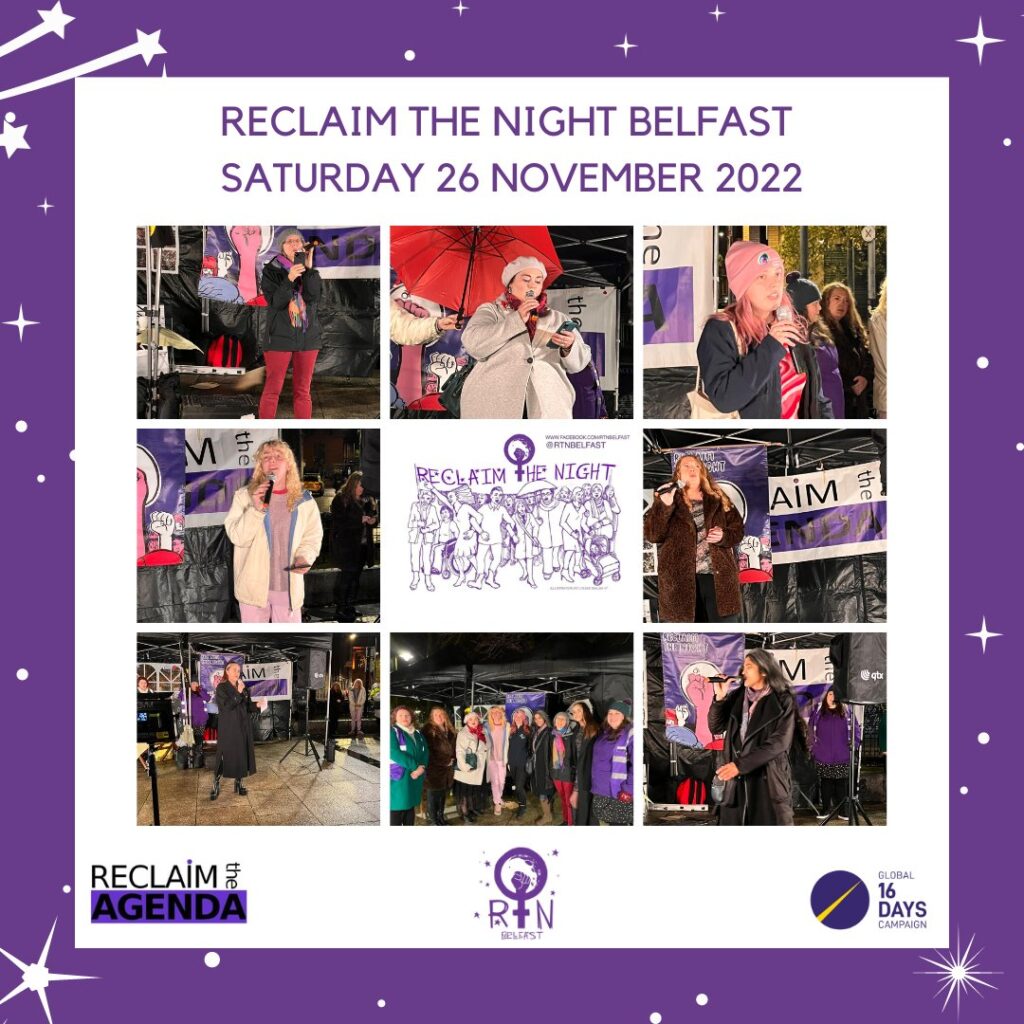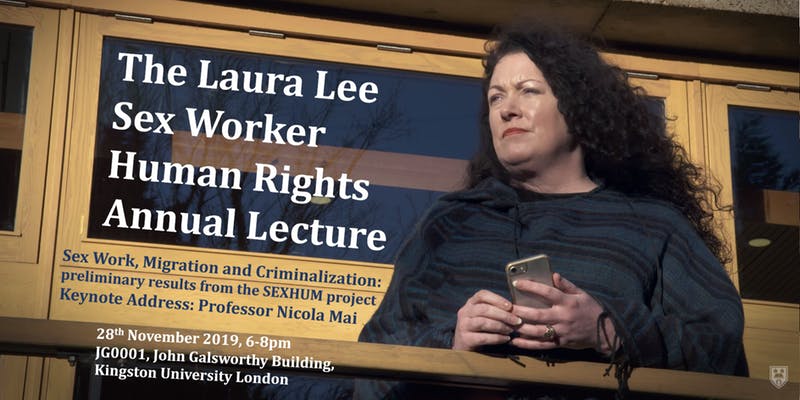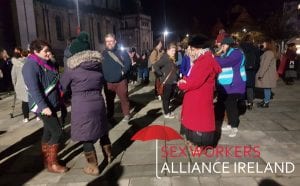
Thank you for inviting Sex Workers Alliance Ireland to speak. A special hello to the sex workers amongst us tonight.
When was the last time you heard someone respectfully use the words “sex worker” in your workplace? Have you ever heard a joke made at a sex worker’s expense? Have you ever seen a movie where the main character is a sex worker, but their job is inconsequential to the plot? Have you ever raved about a documentary that showcases how sex work improves someone’s life?
Often when we think about violence in relation to sex work, we might not recognise how our own behaviour contributes to stigma and discrimination against sex workers. When we hear the words “sex worker” do we think about taboo sexual activity, or do we think about informed consent? Do we think about vilifying and criminalising customers, or do we think about sex workers wanting to work together for safety without the risk of criminal conviction? Do we think about who is profiting from sex work or do we think about sex workers topping up the gas meter to heat their home? Do we think about the permanency of nudes being posted online or do we think about financial companies stealing money and banning sex workers from earning online?
Moral panic is muddying our ability to hear what sex workers have to say. Sex workers are telling us that they want decriminalisation so that they can choose where, with whom and how they work. Safely. The 2019 review of the criminalisation of paying for sexual services in Northern Ireland, reported that a heightened fear of crime has contributed to a climate whereby sex workers feel further marginalised and stigmatised. This is evidence that politicians are choosing to retain these laws whilst being aware that they are continuing to oppress the sex worker community. How we can continue to accept this is unfathomable.
Violence is perpetrated via marginalisation and stigma. I ask you now, to take a moment to imagine the fear experienced by people who say, “I am a sex worker”. Tonight, we have come together as a community to declare that we are united against violence. As always, I ask you to show your solidarity with sex worker rights by giving a big cheer now woo. Reclaim the night, thank you.


